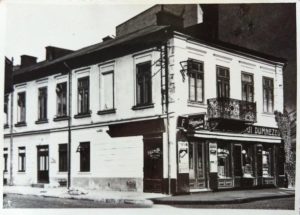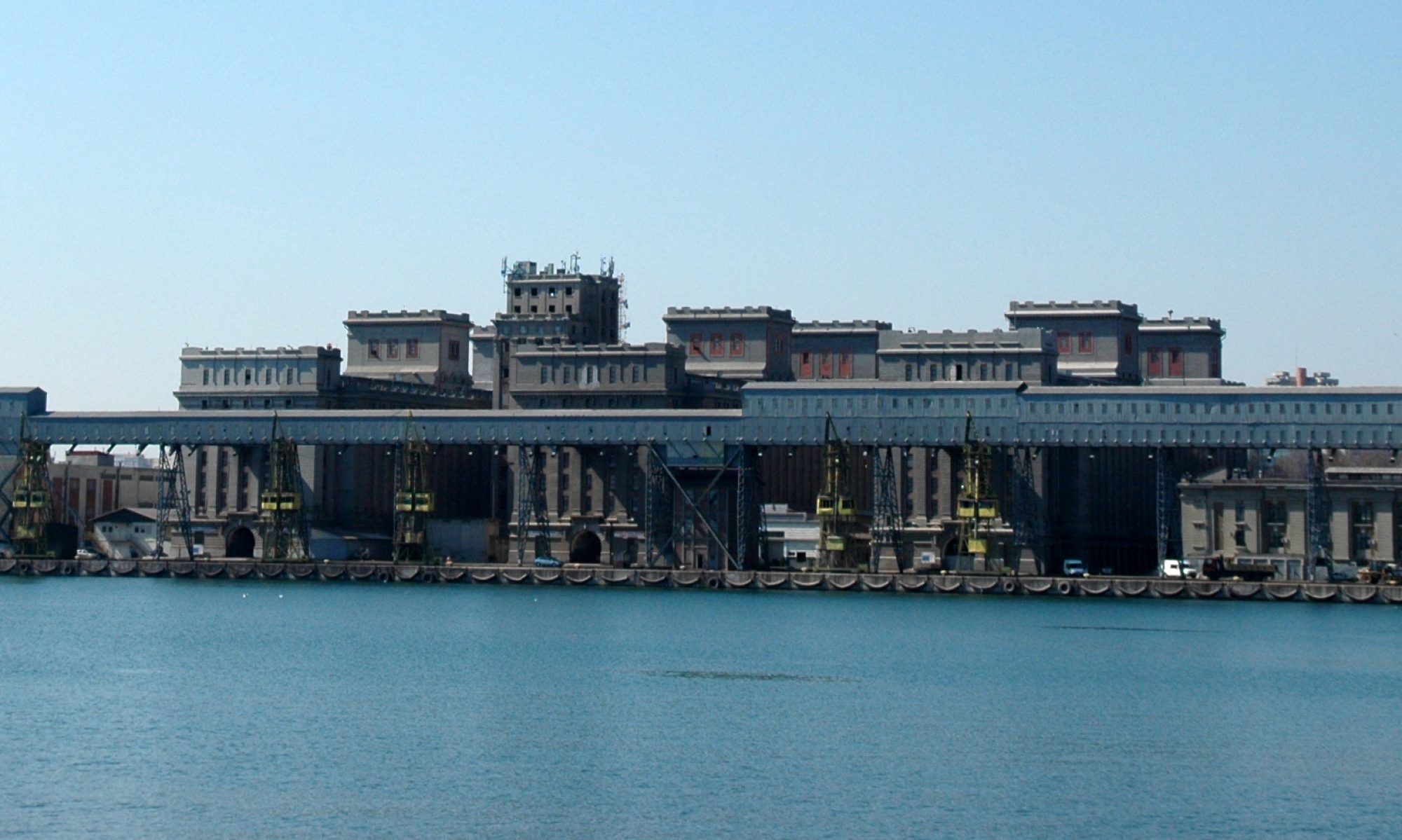

Long time ago, before the World Wars, there were two German pharmacies in Bucharest. One was Thüringer’s, on 43, Elisabeta blvd. the other one was ‚La Ochiul lui Dumnezeu’ (‚At God’s Eye’), opposite to Stirbei Palace, on Calea Victoriei 138.
In 1939, on the occasion of the latter’s centennial anniversary at that location, a collection of ancient pharmaceutical devices was exhibited in the windows of the corner house: jars, tin pots and delicate scales, graters, mortar and pestle sets of various materials, to grind powders from which lozenges and ointments were made.
Behind the house, in a herb garden, various plants were cultivated for their specific uses:
thyme, for cough drops, sage, for disinfecting tinctures, several species of mint, for the stomach troubles, valerian, for treating insomnia, marjoram and lavender, against pain and unrest, rosemary, against migraines and blood pressure, dill and fennel for tummy teas, chervil for the eye bath.
Celandine (rostopasca), said to cure infections and even tumors. Centaury and artichoke thistle, as antioxidants, for liver, rein and blood problems. Horsetail, hemostatic and similar in effect with today’s aspirine. Yarrow (‚soldier’s woundwort’, or ‚coada soricelului’), that would stop bleedings.
This phial contains a few age-old grains of juniper, called ‘Wachholder’ in German. It was probably taken to the household for the kitchen cupboard and thus escaped the pharmacy’s fate.
Mr. Carl Schuster, the owner, had come from Transylvania in 1829 and opened a pharmacy in Bucharest. His brother Gerhard had also opened one in Vienna, on 18, Währinger Strasse, under the name of ‘Zum Auge Gottes’ (which means the same in German).
Gerhard and his sons all died in the First World War. Today the Viennese pharmacy moved to 79, Nussdorferstrasse.
Carl Schuster married in 1840 in Brasov and brought his wife to live with him in Bucharest. Their granddaughter Friederike married in 1920. Her husband, Albert Prall, was a 2m-tall officer freshly out of the Theresian Military Academy in Vienna. He left the army to study and become a pharmacist as well, in order to be able take over ‘God’s Eye’ one day. His story here.
When the Second World War started, Martin Schuster, Carl’s son, was already too old to be enrolled. He spent most of his time at the pharmacy, trying to offer help to whomever needed it.

The tides had turned: Romania switched from neutral at first, to the side of the Axis Powers after the Soviet invasion in Bessarabia and Bucovina. On the 23rd of August 1944, King Michael I removed marshal Ion Antonescu and Romania joined the Allied Forces.
In a tempestuous withdrawal, during three days, the Luftwaffe covered Bucharest with a carpet of bombs. (This, after the Allies had severely bombed the city on Easter that year.)
On August 25th an infantry platoon in company of two tank destroyers rounded up Legatia Germana at 174, Calea Victoriei (opened in 1880, became later Cazino Victoria). Not accepting the defeat, German Embassador Manfred von Killinger shot his secretary first – and then killed himself.
When the sirens started howling again the following night, Mr. Schuster refused to go to take shelter in the Stirbei Palace cellars, claiming that he had to be at the pharmacy, in case somebody would have needed help.
In an attempt to hit the 52.5m high building of the Telephone Palace, the National Theatre on Calea Victoriei was put to ashes. The whole neighbourhood was set ablaze, as the bombs also hit the gas pipes on the main streets.

Eventually, as people from the palace returned and insisted again, Martin Schuster joined them, but left the pharmacy unlocked: he pulled the door shut by its handle, saying that someone might still need bandages, disinfectant or pain killers.
One of the last bombs fell into the pharmacy’s ventilation shaft that night. It landed in the basement and detonated the building together with its herb garden.
Coming out of the shelter the next day, he found the door handle on the pavement.
That – and a bundle of papers that had been locked in a safe – were the only remains of ‘God’s Eye’.
Eventually, with the help of his son in law, he put together a new pharmacy, which was nationalized in 1948. While returning from work one night in March of 1952, Albert Prall was killed by drunken soldiers, together with his Turkish colleague, whom he was trying to protect from being bullied in the street.
But this is a different story.
Albert Prall’s daughter is my grandma.
My mother was born in 1948.
Update on 2017-01-12 12:23 by Doro
 Today I helped grandma out with the Christmas tree. I climbed up the ladder and got the box with the decorations down from the top shelf. The box!… one more piece that survived from the pharmacy!
Today I helped grandma out with the Christmas tree. I climbed up the ladder and got the box with the decorations down from the top shelf. The box!… one more piece that survived from the pharmacy!
May you have a peaceful and happy Christmas with your loved ones! May we never know hardship and duress.

